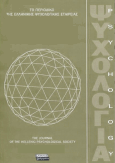How Many Children? A Comparison of the Influence of Individual and Country-Level Predictors on Female Childbearing Behavior in 25 OECD Countries

Abstract
Utilizing a multi-level analytic approach (HLM), the present study analyzes reasons for variations in the number of children among 4069 25- to 34-year old women in 25 OECD countries, surveyed in the World Value Survey (WVS). Educational attainment, household income, age, and pro-child attitudes were included as individual-level predictors, whereas on the country-level, individualism and masculinity (as conceptualized by Hofstede), the Human Development Index (HDI), marriages rates, female employment rates, and early childcare
enrolment rates were used as predictors. On the individual level, pro-child attitudes and age covaried positively with number of children, educational attainment did so negatively, whereas household income
was unrelated. Beyond the overall finding that more highly educated women have fewer children, analyses revealed that the impact of education on fertility varies significantly between countries. Of the macro-level indicators, HDI had the strongest impact in that women in countries higher on HDI have fewer children. Country-specific individualism predicted individual number of children positively after partialing for HDI. This result was, however, not sustained, once female employment rates were included in the prediction model: Against age-old folklore convictions, 25- to 34-year-old woman in countries with a high female employment rate have more not fewer children.
Article Details
- How to Cite
-
BOEHNKE, M., & FELDHAUS, M. (2020). How Many Children? A Comparison of the Influence of Individual and Country-Level Predictors on Female Childbearing Behavior in 25 OECD Countries. Psychology: The Journal of the Hellenic Psychological Society, 16(2), 115–129. https://doi.org/10.12681/psy_hps.23807
- Issue
- Vol. 16 No. 2 (2009)
- Section
- RESEARCH PAPERS

This work is licensed under a Creative Commons Attribution-ShareAlike 4.0 International License.
The journal PSYCHOLOGY adopts a Platinum open-access policy. Submission, processing or publication costs are waived by the Hellenic Psychological Society. Papers published in the journal PSYCHOLOGY are licensed under a 'Creative Commons Attribution-ShareAlike 4.0 International' licence. The authors reserve the copyright of their work and grant the journal the right of its first publication. Third-party licensees are allowed to use the published paper immediately after publication as they wish, provided they retain the defined by the license copyright formalities, regarding the reference to its author(s) and its initial publication in the journal PSYCHOLOGY. Moreover, any adjusted work should be shared under the same reuse rights, so with the same CC license.


